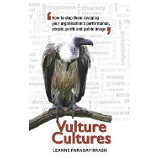Welcome to the May 2013 edition of The Director’s Dilemma.
This month our real life case study focuses on the complex conflicts of interest affecting association boards where the directors are representatives of industry participants.
Consider: Which response would you choose and why?
Ursula is a director of an industry association. Although they use terms such as ‘councillor’ and ‘council’ it is constituted as a board and the members have the same duties and responsibilities as directors under the corporations act. All directors are nominated by companies within the industry and serving on ‘The Council’ is seen as an indication that a person has been identified as a future leader within their organisation and within the industry.
Councillors use the Council to promote their own profiles and enhance their networks.
Ursula is concerned at another aspect of their behaviour; using information that comes to the Council to benefit their own organisations. Information about proposed regulatory changes has leaked allowing first movers to gain an advantage; Ursula suspects her colleagues are involved.
Now the Council is deciding on a package of grant funding that will benefit the smaller participants in the industry as well as attract start-ups. Although this is clearly in the interests of the industry the councillors all come from larger, well established, companies and oppose the program as it will create competition for them. At the last meeting the Chairman remarked “I don’t see why we should be helping upstarts to eat our lunch.” Another board member responded “My boss will certainly not thank me if this gets approved.”
Staff at the government department are mystified as to why a good grant package is taking so long to get industry sponsorship and is continually bogged down in discussions. They have asked Ursula for her opinion on the best way to expedite it.
How should Ursula respond to this request?



